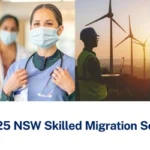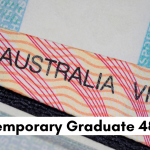On the much-debated topic that whether migrants are stealing jobs from Australian, the Australian Senator Pauline Hanson has made a controversial statement saying that migrants who come on a student visa should not be given work rights. On one hand, where she agrees that migration is a huge source of income to the economy, she counters comment that this migration has now become a reason for the locals in not getting a job.
She said in a recent interview with Sky News that migrants should preferably come to Australia and study and may be doing the 20-hour work that is allowed under the student visa but not be allowed work visa. Allowing them a work visa leads to lesser jobs for the locals. This debate is a much-debated one as migrants normally seek a job for work experience and for their expense management and hence are ready to do odd jobs and at lesser payments. This has been said to spoil the job market for all.

Hanson also discussed why companies are keen on providing employment to migrants as this helps in tax cuts for the companies. She said that One Nation will be working on this to help resolve this and shall roll out a proper plan in this direction. These Australian companies are not paying their taxes are a big source of the leak of revenue for the government and should be monitored carefully. Hanson hinted that One Nation will be working more on monitoring legitimate tax payments.
During the parliamentary debates on 17 October 2017, Hanson has given a speech saying ‘the vast majority of these international student visas have a work right of up to 40 hours a fortnight during the term and unlimited work rights at other times. Let me repeat that: unlimited work rights at other times. When they get the visas to come into the country they should prove that they are self-funding—that they really don’t need to work. And it’s true: we estimate that about 30 to 50 percent of the international students with a work right do work. But it’s ridiculous that no-one in government knows which students work, how much they work, where they work or whether they report their earnings to the ATO.’











